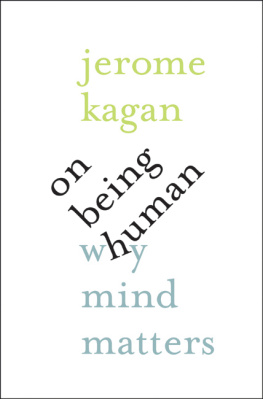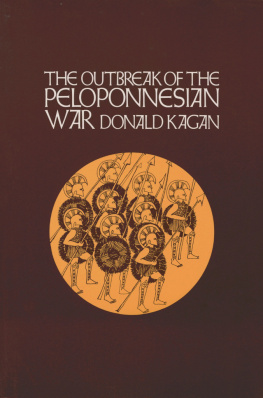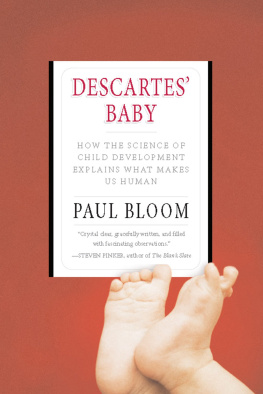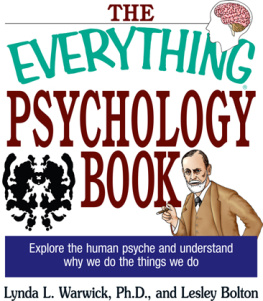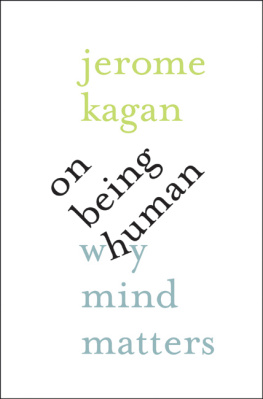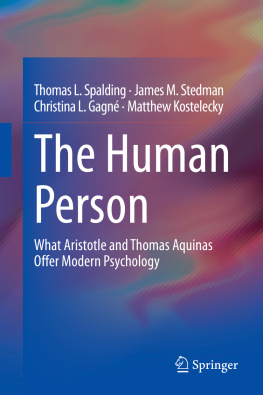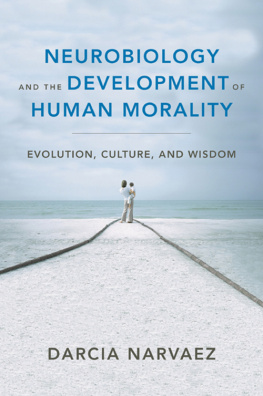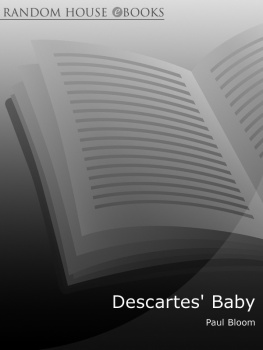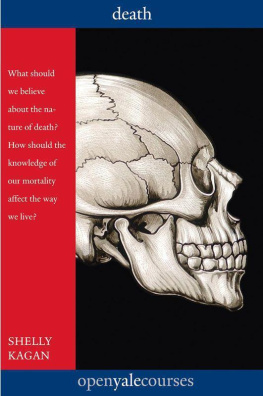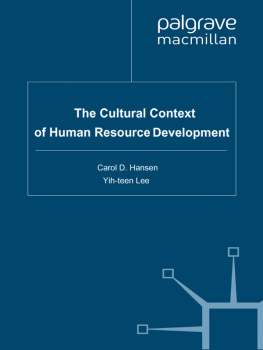The Human Spark
ALSO BY JEROME KAGAN
Psychologys Ghosts
The Temperamental Thread
The Three Cultures
What Is Emotion?
Three Seductive Ideas
The Second Year
An Argument for Mind
The Long Shadow of Temperament
Galens Prophecy
The Nature of the Child
Birth to Maturity
THE
Human Spark
The Science of Human Development

Jerome Kagan
BASIC BOOKS
A MEMBER OF THE PERSEUS BOOKS GROUP
New York
Copyright 2013 by Jerome Kagan
Published by Basic Books,
A Member of the Perseus Books Group
All rights reserved. No part of this book may be reproduced in any manner whatsoever without written permission except in the case of brief quotations embodied in critical articles and reviews. For information, address Basic Books, 250 West 57th Street, 15th Floor, New York, NY 10107.
Books published by Basic Books are available at special discounts for bulk purchases in the United States by corporations, institutions, and other organizations. For more information, please contact the Special Markets Department at the Perseus Books Group, 2300 Chestnut Street, Suite 200, Philadelphia, PA 19103, or call (800) 810-4145, ext. 5000, or e-mail .
Designed by Timm Bryson
Library of Congress Cataloging-in-Publication Data
Kagan, Jerome.
The human spark : the science of human development / Jerome Kagan.
pages cm
Includes bibliographical references and index.
ISBN 978-0-465-03773-5 (e-book) 1. Child psychology. 2. Child development. 3. Psychology. I. Title.
BF721.K155 2013
155dc23
2012047558
10 9 8 7 6 5 4 3 2 1
CONTENTS
Social scientists who were trained in American universities during the first half of the twentieth century found it hard to escape the assumptions about human nature that history had bestowed on them. As that century began, large numbers of children from impoverished, illiterate immigrant families living in densely populated neighborhoods were doing poorly in school and disrupting civic harmony. The social scientists preferred explanation of such facts emphasized the power of experience to create these and other profiles. This unquestioned faith in the malleability of the mind, an idea not yet documented by research, sustained the hope that proper rearing within the family and proper instruction by conscientious teachers in the schools could transform all children into productive citizens.
Only a few decades earlier, many experts had assumed that the less-than-adequate adjustment of the children born to poor immigrants was attributable to inherited biological defects. This pessimistic explanation bothered liberal Americans who, believing in the power of experience to conquer all but the most serious deficiencies, hungered for scientific support of their belief. Freud and the behaviorists supplied the reassurance by announcing that variation in experience could account for most of the variation in childrens competences and behaviors. By the 1950s, a large majority of developmental psychologists were certain that the events of early childhood, especially in the home, were the primary determinants of adolescent and adult profiles. Each childs biological features, which the psychologists did not deny, could essentially be ignored.
A rash of unexpected scientific discoveries after 1960 challenged this optimistic position. Stella Chess and Alexander Thomas described the contribution of infant temperaments to later personality at the same time that others were finding evidence for genetic contributions to many talents. These discoveriescombined with the failure to provide convincing evidence that experience alone could create an extremely shy, aggressive, or intellectually impaired childforced the next cohort of psychologists to acknowledge biologys influence.
I entered graduate school in 1950 committed to the older environmental position but sufficiently receptive to the biological perspective to take advantage of a chance event that led to a personal epiphany. This event occurred during the 1960s, when I visited Guatemala as a member of a team of American scientists charged with evaluating a research proposal on the effects of nutritional supplements on the health and cognitive talents of malnourished children living in poor, rural villages. Following our formal meeting, Robert Klein, the American psychologist who would direct the day-to-day operations of the research, took me to Lake Atitlan in the northwest part of the country. This exquisitely beautiful, cobalt-blue lake at the foot of a volcano was rimmed by a number of villages containing the descendants of Mayan Indians, some living under conditions that had not changed much over the previous two hundred years.
This scene provoked my curiosity about the development of children in this non-Western setting, and I spent my sabbatical year in 19721973 observing adults and children in one of the poorest, most isolated villages on the lake. It was there, after several months of study, that I was forced to acknowledge biologys substantial contribution to psychological development through its control of brain maturationan idea supported by evidence from other laboratories as well. Upon returning to Harvard in the fall of 1973, I devoted much of the work of my own laboratory to the pursuit of this idea.
I summarized my revised views of development in 1984 in The Nature of the Child. This book (and its 1994 revision) contained three major themes. The first was that the major changes in behavior over the first few years of life depend on stages of brain maturation. This idea implied the second themenamely, that the habits and emotions established during the first year might be so seriously altered as to have little influence on the psychological profiles of older adolescents. The third theme was that the human capacity to understand the distinction between right and wrong emerges during the second year. All three ideas, which were tentative twenty-eight years ago, are now firm facts thanks to the efforts of many investigators.
As I was searching for a writing project in the spring of 2011, the idea of revising The Nature of the Child pierced consciousness and T.J. Kelleher of Basic Books found this proposal attractive. Upon completing the early draft s of each chapter, I was surprised by the need to recast the arguments and to elaborate three questions that had been less clearly articulated in the 1984 book: What is the expected developmental course for the cognitive talents, motor skills, emotions, beliefs, and moral values that are inherent possibilities in all children? How does variation in experience affect the rates at which these properties develop and the forms they assume? And, finally, what factors determine the variation among children and adults within every community? The present book probes the concepts of morality and emotion more deeply than the original and addresses a concern that was less salient in 1984 but is now widespread: mental illness in children and adolescents. Because this book covers a larger territory than the earlier one, it needed a new title.
considers the influences of culture and history. Each persons experiences in a particular culture during a particular era select one profile from an envelope of possibilities that existed during the first hours after birth. Human behavior is controlled by features in the local setting and the persons motives and beliefs. On the one hand, children must react to events that threaten their survival or mental serenity. They must do something if attacked and maintain relationships with those supporting them. On the other hand, many actions are provoked by ideas, especially representations of the properties one ought to attainwhether good grades, friends, love, money, a higher status, or greater power.


